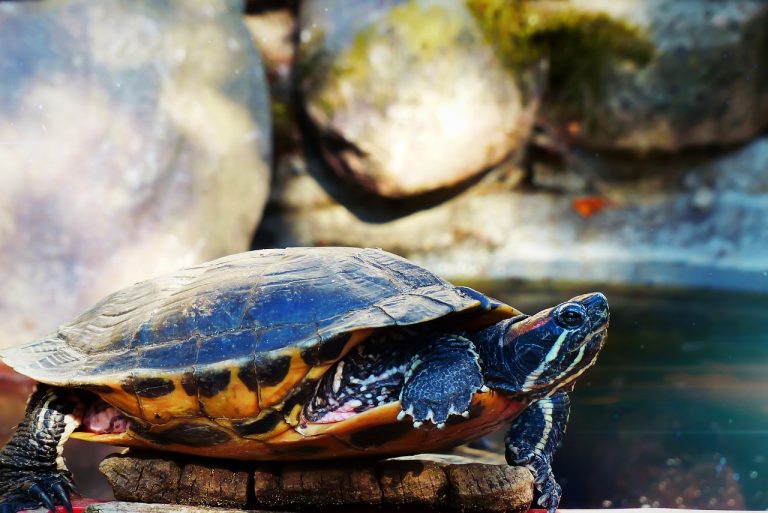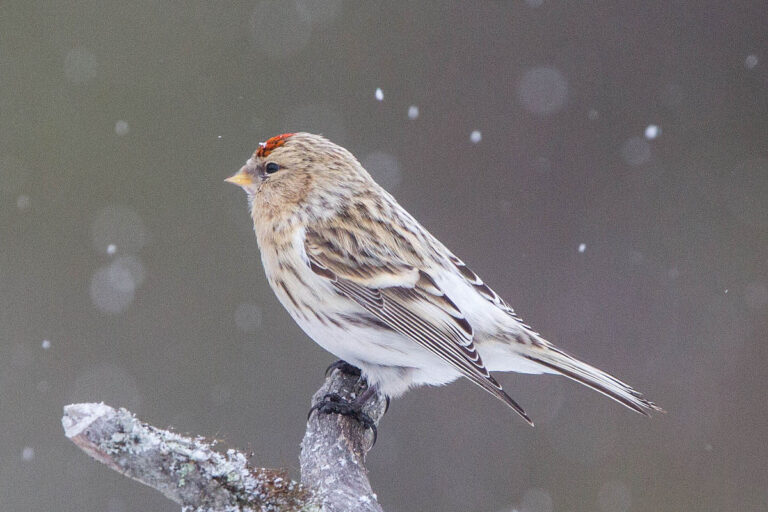Do Florida Softshell Turtles Bite?
I always advise understanding a Florida Softshell turtle’s behavior before considering buying or adopting one. Why? Because it’s crucial to know whether it’s generally calm or prone to quick anger. This knowledge helps you tailor your care to suit the pet’s preferences. In this article, I’ll delve into the behavior of Florida softshell turtles specifically, examining whether they exhibit biting or aggressive tendencies.
Florida softshell turtles are known for bite. This applies not only to this particular subspecies but also to others like the Spiny and Smooth softshell turtles, which can display aggression when provoked.
If you’re eager to know deeper into the behavior of Florida softshell turtles, I encourage you to continue reading this article until the end.
Florida Softshell Turtles: An Aggressive Species
Florida softshell turtles are quite the feisty bunch. These turtles don’t just reserve their aggression for predators or humans; they’ll even go at it with their fellow turtles. Those in the know advise against keeping more than one Florida softshell turtle together in a single enclosure because of their fiery temper.
Now, if you happen to house two male softshell turtles in the same pen, be prepared for some serious squabbles. On the other hand, if you introduce a male and female turtle, the females typically take on a more passive role in the relationship. These turtles boast strong jaws and sharp claws, so if they do decide to go on the offensive, their attacks can be pretty severe.

How Does The Bite Of A Florida Softshell Turtle Feel Like?
Whenever someone poses this question to me, it brings to mind a quote from a wildlife artist. He once remarked that while he wasn’t afraid of snakes, he wouldn’t dream of tangling with softshell turtles.
Let me tell you, Florida softshell turtles bite just like snapping turtles do, and their bites pack a serious punch. A fully grown Florida softshell turtle could easily take a finger off with its bite. Even the bites from small or baby Florida softshell turtles can be excruciatingly painful.
You bet, blood isn’t an uncommon sight when dealing with a Florida softshell turtle bite. Their bites can leave deep marks or even just a single scratch on your skin.
Do The Florida Softshell Turtles Have Teeth?
When you discover that Florida softshell turtles are capable of biting, it’s natural for this question to arise. But here’s a surprising fact: these turtles don’t actually have teeth. Instead, they wield a horny beak, which they employ during attacks. The sharpness of these beaks is a clear indication of the species’ carnivorous nature.
Now, onto another fascinating tidbit: when Florida softshell hatchlings first break free from their eggs, they sport what are known as caruncles, or egg teeth. These little protuberances are crucial because the hatchlings can’t rely on their claws or any other body parts to crack open their eggshells. So, they use these egg teeth to make their grand entrance into the world.
In a baby Florida softshell turtle, you’ll notice a caruncle positioned at the front of its upper jaw. Interestingly, these egg teeth typically fall off after about one or two months.
In essence, the Florida softshell turtle employs its long neck to reach up to predators and its sharp jaw to launch an attack.
Why Do The Florida Softshell Turtles Bite?
The Florida softshell turtle’s shell is notably soft, rendering the species vulnerable to predators. Whenever it feels stressed, it tends to act aggressively. Here are a few reasons why these turtles resort to biting:
- If a predator attempts to attack the turtle, it will retaliate by trying to bite the aggressor.
- Often found in freshwater sources, if you attempt to capture a softshell turtle, it may resort to biting in self-defense.
- Mishandling can provoke a bite; picking up the turtle incorrectly may trigger an aggressive response.
- Stress or panic can prompt the turtle to lash out with a bite.
- When offering food to your pet Florida softshell turtle by hand, it’s wise to remain vigilant. Hunger may cause it to inadvertently bite your fingers.
Absolutely, it’s wise not to mess with a Florida softshell turtle. When threatened, it won’t hesitate to defend itself, and let me tell you, its bite is nothing to scoff at—it can be excruciating.
How To Catch The Florida Softshell Turtles?
Most of the time, a Florida softshell turtle will resort to biting if you pick it up incorrectly. Since these creatures don’t actually have a soft shell, handling them can be a bit tricky.
Here’s a method I suggest for safely handling a Florida softshell turtle:
First, lift the bottom part of the turtle and slide your hand underneath. Ensure that the turtle’s plastron rests over your palm. Then, gently lift the turtle, making sure your palms do not cross the midsection of the plastron.
Next, the bottom part above the turtle’s tail will naturally bend down. Place your other palm there and hold the turtle gently, while keeping its face slightly upward.
It’s crucial to be extremely gentle when handling Florida softshell turtles because they can be quite aggressive. If you attempt to grasp them from their sides, they may kick or slide and potentially fall to the ground. However, if you approach them with their face towards your hand, you’ll reduce the risk of getting bitten.
I recently came across a video where someone recommended flipping a softshell turtle over and holding it. Personally, I strongly advise against this practice. Flipping the turtle repeatedly can cause harm and agitate it.
Initially, picking up a softshell turtle can indeed pose a challenge. It might even kick you with its claws. However, with practice, you’ll eventually master the technique.
Here’s some advice for encountering softshell turtles in the wild or near freshwater sources: refrain from picking them up altogether. Even if you do happen to come across one, it’s best to leave it exactly where you found it and avoid interfering with its natural direction.
Can The Bite Of A Florida Softshell Turtle Make You Sick?
Typically, a bite from a Florida softshell turtle won’t make you sick. However, a deep bite can cause your wound to bleed and may leave a permanent mark. While the wound can be painful, there are usually no other adverse effects.
In certain instances, handling a Florida softshell turtle or being bitten by one can indeed lead to illness. Some experts suggest that the species may carry a strain of cholera. Therefore, if you’re bitten by a sick turtle, you may require medication to address any potential health issues.
Salmonella bacteria are widely recognized, and they pose a risk associated with wild Florida softshell turtles as well as those kept in captivity. If you’re bitten by a turtle carrying Salmonella, you could contract the disease yourself. It’s crucial to be cautious and seek medical attention if necessary after any interaction with these turtles.
What To Do If A Florida Softshell Turtle Bites You?
Don’t be alarmed by the previous information. While a bite from a Florida softshell turtle may or may not make you sick, it’s important to take immediate action if you do get bitten. Here are some pieces of advice to follow:
If there’s blood coming out of the wound, make sure to clean it thoroughly with a disinfectant and apply a bandage.
Even if it’s just a scratch, it’s essential to wash the area with antibacterial solutions.
In the unfortunate event that you’re bitten by a Florida softshell turtle carrying Salmonella bacteria, you might fall ill. Symptoms of this disease include diarrhea, stomach cramps, and fever. Typically, Salmonella isn’t too severe and tends to resolve on its own, but be sure to drink plenty of water while you’re feeling unwell.
If you’re overly concerned about the bite, it’s best to consult with a doctor right away. However, there are some preventive tips you can follow to avoid being bitten in the first place.
Here are some preventive tips to avoid getting bitten by a Florida softshell turtle:
- Refrain from disturbing the turtle unnecessarily.
- If you need to pick up or hold it, do so gently.
- Avoid placing your fingers close to its neck, as it can extend its long neck and bite.
- When feeding the turtle by hand, consider wearing gloves as a precaution.
- If you must handle the pet, use gloves and remember to wash your hands thoroughly before and after touching it.
- Additionally, if the pet is suspected of carrying Salmonella, take extra precautions to keep it away from children and pregnant individuals.
Final Words
Florida softshell turtles do have a biting habit, and it can indeed be painful. However, they generally make good pets and will only resort to aggression if they feel vulnerable, stressed, or panicked. Therefore, it’s important not to provoke them and to treat them with care and respect.





